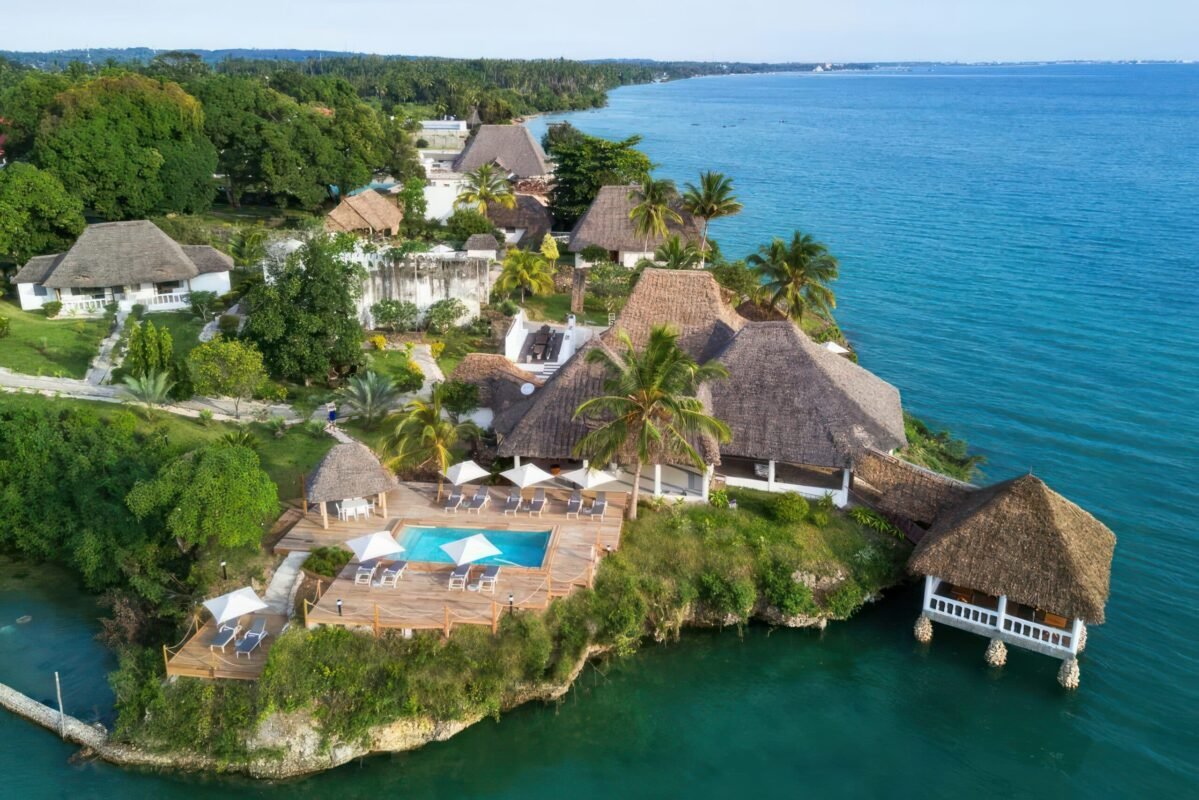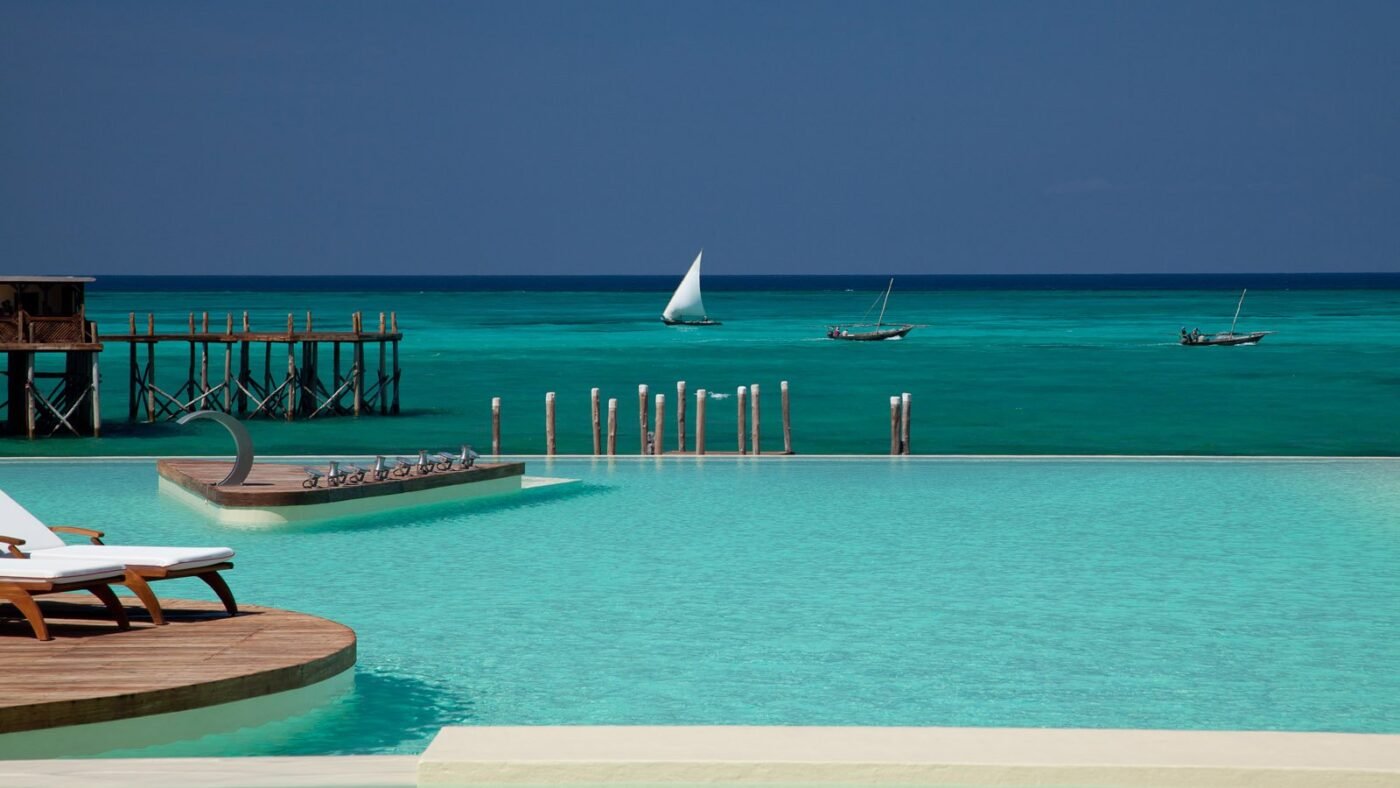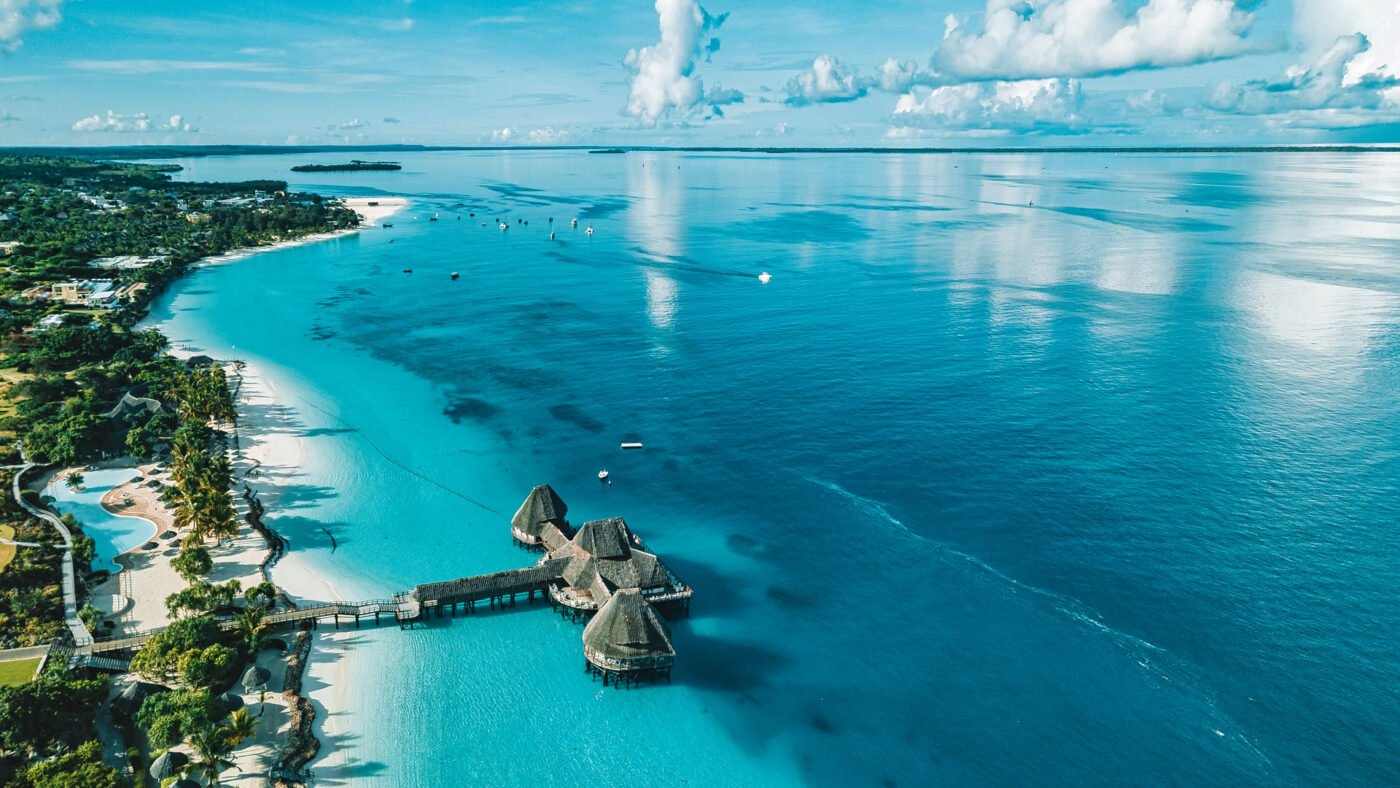Zanzibar is in Tanzania: Zanzibar, an archipelago off the eastern coast of Africa, is one of Tanzania’s most captivating regions. Known for its stunning beaches and rich history, Zanzibar holds a unique position in the African landscape. This article explores Zanzibar’s geographical, historical, cultural, and economic significance within Tanzania.
1. Introduction to Zanzibar
Zanzibar is often described as a paradise on earth. It attracts travelers with its turquoise waters and vibrant culture. As a semi-autonomous region of Tanzania, Zanzibar has a distinct identity shaped by its history and geography. The archipelago consists of two main islands: Unguja and Pemba, along with several smaller islets.
Understanding Zanzibar’s unique position requires examining its geographical significance, historical background, and cultural heritage. This article aims to shed light on how Zanzibar contributes to Tanzania’s overall identity.
2. Geographical Overview
Location and Composition
Zanzibar is located in the Indian Ocean, about 25 to 50 kilometers off the coast of mainland Tanzania. The archipelago includes two major islands—Unguja (often called Zanzibar Island) and Pemba—as well as several smaller islets. Unguja is the larger island, known for its capital, Zanzibar City, and the historic area of Stone Town, a UNESCO World Heritage Site.
The islands are surrounded by rich coral reefs, making them popular destinations for snorkeling and diving. The geography of Zanzibar features sandy beaches, mangroves, and lush spice plantations, contributing to its tropical paradise reputation.
Climate and Natural Features
Zanzibar has a tropical climate, with two main seasons: the dry season (June to October) and the rainy season (November to May). The warm temperatures and high humidity make it attractive year-round, but the best time to visit is during the dry season.
Zanzibar is famous for its beautiful natural features, such as the beaches of Nungwi and Kendwa on Unguja Island. The lush greenery and hills of Pemba Island provide a stunning backdrop for nature enthusiasts.
3. Historical Context
Early Inhabitants and Trade
Zanzibar has a rich history dating back thousands of years. The indigenous Shirazi people were among the first inhabitants, practicing agriculture and fishing. The island’s strategic location along ancient trade routes made it a significant trading hub.
By the 1st century AD, Zanzibar began to thrive as a center for trade, exporting ivory, cloves, and spices. This commerce laid the foundation for rich cultural exchanges and blending of different civilizations.
Arab and Portuguese Influence
The arrival of Arab traders in the 7th century marked a turning point in Zanzibar’s history. The island became part of the Arab trade network, facilitating the exchange of goods and ideas. This influence is evident in Zanzibar’s culture, language, and architecture.
In the late 15th century, the Portuguese seized control of Zanzibar, but their rule lasted only about a century. In the 17th century, the Omani Arabs expelled the Portuguese and reasserted control over the islands.
The Omani Sultanate and Colonial Era
Under Omani rule, Zanzibar flourished as a center for the spice trade. The economy thrived on producing and exporting cloves, nutmeg, and cinnamon. Plantations shaped the region’s landscape.
The slave trade also played a significant role during this period. Zanzibar became a major hub for the trade of enslaved Africans. The abolition of slavery in the late 19th century led to social and economic changes that impacted the island’s demographics.
In the late 19th century, Zanzibar became a protectorate of the British Empire. The British influence brought modernization but also resistance from local leaders.
Independence and Revolutionary Change
Zanzibar gained independence from British colonial rule in 1963, but a violent revolution in January 1964 overthrew the Sultanate. This resulted in significant political and social upheaval.
In April 1964, Zanzibar united with Tanganyika to form the United Republic of Tanzania. This union solidified Zanzibar’s connection to the mainland while maintaining its unique identity. Historical events continue to influence Zanzibar’s politics, culture, and society today.
4. Cultural Significance
Swahili Culture and Language
Zanzibar is a melting pot of cultures, with a rich heritage influenced by Arab, Persian, Indian, and African traditions. The Swahili culture is prominent, characterized by its unique language, art, and customs. Swahili is the official language spoken in Zanzibar, unifying its diverse population.
The island’s architecture reflects its cultural influences. You can find intricately carved wooden doors, narrow winding streets, and bustling markets in Stone Town, showcasing the island’s architectural and cultural diversity.
Art, Music, and Dance
Zanzibar is known for its vibrant arts scene, encompassing music, dance, and crafts. Traditional music styles, such as Taarab and vibrant drumming, are integral to cultural expression. Taarab music, a fusion of African, Arab, and Indian influences, features poetic lyrics and melodic instruments, often performed at weddings and celebrations.
Local artisans produce exquisite crafts, including wood carvings, woven textiles, and beautiful jewelry. Visitors can explore local markets and galleries to appreciate the creativity and skill of Zanzibar’s craftsmen.
Culinary Traditions
Zanzibar’s culinary landscape reflects its diverse cultures and rich agricultural heritage. The island is famous for its spices, earning it the nickname “Spice Island.” The culinary scene features fresh spices, seafood, and locally grown produce.
Some popular dishes include:
- Zanzibar Pizza: A unique street food filled with local ingredients.
- Biryani: A fragrant rice dish with spices, meat, and vegetables.
- Uji: A traditional porridge made from various grains.
Exploring Zanzibar’s culinary offerings is a delightful experience, with many restaurants and street vendors serving a variety of delicious dishes.
5. Tourism and Economic Impact
Attractions and Activities
Zanzibar is a top travel destination, attracting visitors worldwide. Its stunning beaches, crystal-clear waters, and rich cultural heritage make it a paradise for tourists seeking relaxation and adventure. Key attractions include:
- Stone Town: A UNESCO World Heritage Site with historic architecture and bustling markets.
- Prison Island: Home to giant tortoises and beautiful beaches.
- Jozani Forest: A protected area with endangered red colobus monkeys.
- Spice Tours: Guided tours through spice plantations showcasing the island’s spice trade.
Zanzibar also offers various water sports, including snorkeling, diving, and sailing, making it ideal for adventure seekers.
The Role of Tourism in Zanzibar’s Economy
Tourism is vital to Zanzibar’s economy, contributing significantly to the region’s GDP and providing employment opportunities. The sector supports local businesses, from hotels and restaurants to artisan markets and tour operators.
As tourism continues to grow, Zanzibar works to enhance its infrastructure and promote sustainable practices to ensure the long-term viability of its tourism industry.
Sustainable Tourism Initiatives
Zanzibar recognizes the importance of sustainable tourism practices to protect its natural environment and cultural heritage. Efforts include:
- Eco-friendly Accommodations: Promoting eco-lodges that minimize environmental impact.
- Conservation Projects: Supporting initiatives to protect marine ecosystems and cultural heritage sites.
- Community Engagement: Involving local communities in tourism planning and development.
These initiatives aim to balance tourism growth with the preservation of Zanzibar’s unique environment and culture.
6. Political and Administrative Status
Zanzibar’s Government Structure
Zanzibar operates under a semi-autonomous government system within Tanzania. The island has its own constitution, president, and parliament, allowing it to manage certain internal affairs. However, matters related to defense and foreign policy are managed by the mainland government.
The semi-autonomous status provides Zanzibar with self-governance while maintaining its connection to Tanzania.
Relations with Mainland Tanzania
Zanzibar’s relationship with the mainland is complex, influenced by historical and political factors. While there are shared interests, tensions can arise due to political disagreements.
Efforts to promote cooperation and unity between Zanzibar and the mainland are ongoing, addressing challenges and fostering development for the benefit of all Tanzanians.
7. Conclusion
Zanzibar’s unique position within Tanzania is shaped by its geographical, historical, and cultural significance. As a stunning archipelago with a rich heritage, Zanzibar offers travelers an extraordinary experience filled with adventure and beauty. From its breathtaking beaches to its vibrant markets and historic sites, the island embodies the spirit of Tanzania.
Understanding Zanzibar’s role within Tanzania goes beyond its physical presence; it involves appreciating the island’s contributions to the nation’s identity and cultural diversity. Whether exploring Stone Town or indulging in delicious cuisine, Zanzibar promises an unforgettable journey that reflects the best of Africa.
As tourism continues to grow, preserving Zanzibar’s natural beauty and cultural heritage remains essential. With sustainable practices and community involvement, Zanzibar can thrive as a captivating destination that honors its unique position in the world.



